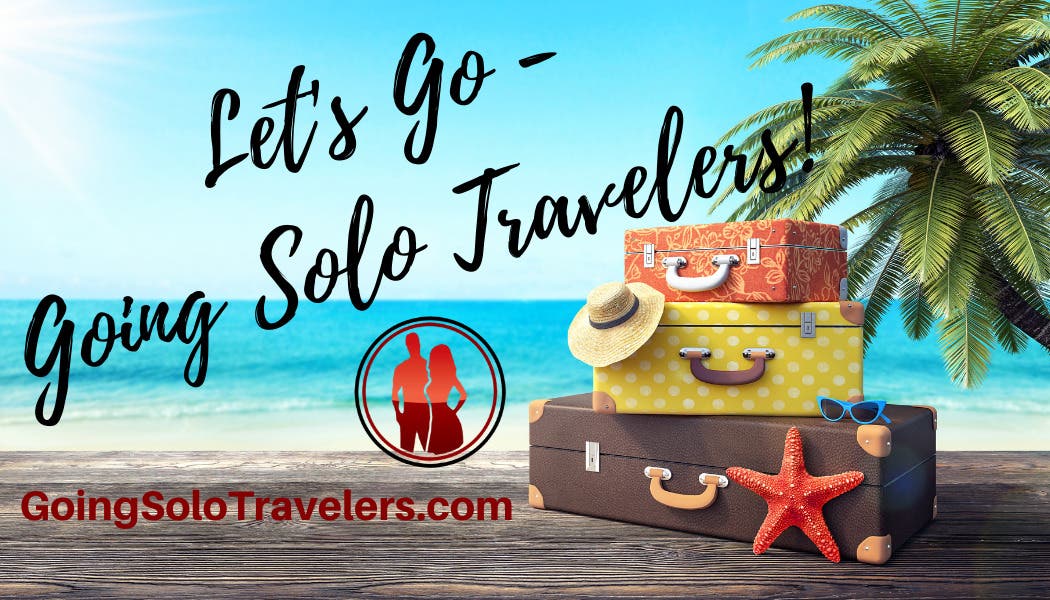Going Solo: Planning Your Independent Travel Adventure

Table of Contents
Choosing Your Destination for Independent Travel
Choosing the right destination is crucial for a successful independent travel experience. Your choice should align perfectly with your travel style, budget, and desired experiences.
Matching Destination to Your Travel Style
Consider your comfort level with adventure, your budget, and the type of experiences you seek (e.g., cultural immersion, nature exploration, city hopping). Are you a seasoned backpacker or do you prefer comfortable hotels? Do you thrive in bustling cities or prefer tranquil rural settings? Knowing this will help narrow down your options.
- Research destinations known for solo traveler friendliness. Many destinations actively cater to solo travelers, offering hostels with social activities and tours designed for individuals.
- Consider factors like visa requirements, language barriers, and local customs. Research visa requirements well in advance to avoid delays. Learn a few basic phrases in the local language to enhance your interactions. Familiarize yourself with local customs and etiquette to avoid unintentional offense.
- Look for destinations with well-developed infrastructure and reliable transportation. Easy access to transportation is essential for independent travel. Choose destinations with reliable public transport, readily available taxis, or good rental car options.
- Read blogs and reviews from other solo travelers. The experiences of other solo travelers are invaluable. Search for blogs, forum posts, and travel reviews focused on solo trips to your potential destinations.
Budgeting for Your Independent Trip
Budgeting is paramount for independent travel. An accurate budget ensures you can fully enjoy your trip without unexpected financial stress.
- Research average daily expenses for your chosen destination. Websites and travel blogs often provide estimates for daily expenses, including accommodation, food, and activities.
- Set a realistic budget and stick to it. Allocate funds for flights, accommodation, activities, food, visa fees, travel insurance, and importantly, a buffer for unexpected expenses.
- Consider travel during the shoulder season for lower prices. Traveling during the shoulder season (the periods between peak and off-season) often offers lower prices on flights and accommodation.
- Look for affordable accommodation options like hostels or guesthouses. Hostels are a great way to meet other travelers and save money on accommodation. Guesthouses offer a more local experience at a reasonable price. Utilize booking platforms and compare prices.
Planning Your Independent Travel Itinerary
While spontaneity is part of the fun of independent travel, a well-planned itinerary ensures you maximize your time and experience.
Creating a Flexible Itinerary
A flexible itinerary allows for spontaneity and unexpected discoveries while still ensuring you see the key sights.
- Research must-see attractions and activities. Research popular attractions and activities in your destination and prioritize those that align with your interests.
- Book flights and accommodation in advance, especially during peak season. Booking in advance, particularly for popular destinations during peak season, secures your travel arrangements and often offers better prices.
- Allow for buffer days in case of unexpected delays or changes of plans. Unexpected delays or changes of plans can happen. Building buffer days into your itinerary provides flexibility to adapt to unforeseen circumstances.
- Prioritize experiences over ticking off a checklist. Focus on immersing yourself in the local culture and having meaningful experiences rather than simply ticking off a list of tourist attractions.
Prioritizing Safety and Security
Safety and security are paramount when traveling independently. Take proactive steps to minimize risks and ensure a safe journey.
- Keep important documents and valuables secure. Use secure methods of carrying your passport, tickets, and credit cards. Consider using a money belt or a secure travel wallet.
- Be aware of your surroundings and avoid walking alone at night in unfamiliar areas. Pay attention to your surroundings and avoid walking alone, particularly at night, in areas you're unfamiliar with.
- Learn basic phrases in the local language. Knowing basic phrases can improve your interactions with locals and help you navigate situations more effectively.
- Invest in travel insurance that covers medical emergencies and trip cancellations. Comprehensive travel insurance is essential to protect yourself against unexpected events, including medical emergencies and trip cancellations.
Staying Connected During Your Independent Journey
Staying connected is crucial for safety, communication, and accessing information during your independent travel.
Communication and Connectivity
Maintaining communication with loved ones and accessing essential information is critical.
- Purchase a local SIM card or a portable Wi-Fi hotspot. A local SIM card provides affordable data and calling options. A portable Wi-Fi hotspot offers convenient internet access.
- Download offline maps and translation apps. Offline maps allow you to navigate even without an internet connection. Translation apps facilitate communication with locals.
- Inform your bank and phone provider about your travel plans. This prevents your bank from blocking your cards and ensures your phone remains active.
- Consider using a travel communication app to stay in touch with friends and family. Many apps allow for free messaging and calling, even internationally.
Embracing the Solo Experience
Independent travel is about embracing the unknown, discovering yourself, and connecting with others.
- Be open to new experiences and opportunities. Say yes to new adventures and be open to unexpected opportunities.
- Don't be afraid to strike up conversations with locals and other travelers. Engage in conversations with locals and other travelers to learn about their cultures and experiences.
- Join group tours or activities to meet people. Group tours and activities are a great way to meet fellow travelers and share experiences.
- Take advantage of the freedom to explore at your own pace. One of the greatest advantages of independent travel is the freedom to explore at your own pace and choose your own path.
Conclusion
Planning your independent travel adventure might seem challenging, but with careful preparation and a sense of adventure, it can be incredibly rewarding. By choosing the right destination, creating a flexible itinerary, prioritizing safety, and staying connected, you can embark on a truly enriching solo journey. So, what are you waiting for? Start planning your dream independent travel adventure today! Remember to research thoroughly, prioritize safety, and embrace the unique opportunities that solo travel offers. Don't hesitate – start planning your next independent travel experience now!

Featured Posts
-
 L Integrale Agatha Christie Mysteres Enquetes Et Aventures
May 20, 2025
L Integrale Agatha Christie Mysteres Enquetes Et Aventures
May 20, 2025 -
 Huuhkajien Kaellman Ja Hoskonen Jaettaevaet Puolalaisseuran
May 20, 2025
Huuhkajien Kaellman Ja Hoskonen Jaettaevaet Puolalaisseuran
May 20, 2025 -
 Sandylands U Tv Listings And Air Dates
May 20, 2025
Sandylands U Tv Listings And Air Dates
May 20, 2025 -
 Manchester Uniteds Rashford Leads Victory Against Aston Villa In Fa Cup Clash
May 20, 2025
Manchester Uniteds Rashford Leads Victory Against Aston Villa In Fa Cup Clash
May 20, 2025 -
 Manchester United Evaluating The Long Term Impact Of Amorims Forward Signing
May 20, 2025
Manchester United Evaluating The Long Term Impact Of Amorims Forward Signing
May 20, 2025
